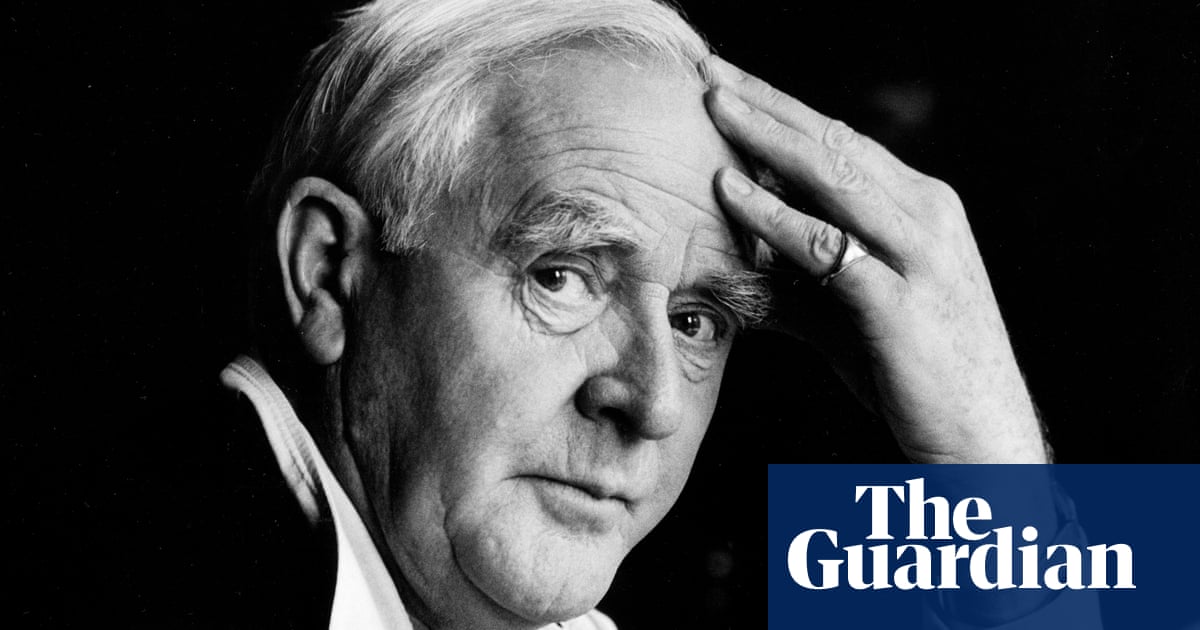He wrote some really great Cold War spy novels, and some of his later work was pretty good as well. Also recognized that the post Cold War era was going to be even more morally gray than the Cold War had been.
The Looking Glass War is my favorite spy novel ever. The whole plot is premised on a car accident that might or might not have been an assassination, and the series of blunders and mistakes that ensue when leadership assumes it was an assassination. He wrote it after people reacted favorably to The Spy Who Came in From the Cold, thinking it made spying seem cool, which was not Le Carre's intention at all. He wrote Looking Glass War to be make it obvious that he thought postwar spying was largely futile, wasteful, pointless and entirely too caught up in ego and memories of WW2.
Naturally, because the book is unremittingly bleak, it got bad reviews at the time and is not often remembered. But Le Carre felt it was one of the more important of his books, as he wrote after the UK went into Iraq:
The superbug of espionage madness is not confined to individual cases. It flourishes in its collective form. It is a homegrown product of the industry as a whole. Is a cure at hand? I doubt it. The most down-to-earth citizens from the real world, appointed to oversee the spooks’ activities, turn to clay in their hands. Faith in spies is mystical, fuelled by fantasy and halfway to religion. They’re a protected species in our national psychology. Our banks and financial services may collapse, our economy may be going through the floor, our road and rail system may be a catastrophe, our Millennium Dome a laughingstock, the cost of fuel, energy, and water rising by the week, but our spies are immune to all of it. Never mind how many times they trip over their cloaks and leave their daggers on the train to Tonbridge, the spies can do no wrong.
It’s the men who are mostly to blame. Were wise women present when the notorious and acutely embarrassing Iraq Dossier, justifying Britain’s involvement in the Iraq war—and better known as the Dodgy Dossier—was composed? If they were, they were outgunned by the men of madness, who didn’t merely plagiarize a five-month-old article dredged from an obscure academic journal; they seriously believed, in their hubris and ignorance of the real world, that they could get away with it. It is slender comfort, but entirely in keeping with the code of reward and punishment dear to our present government, that the dossier’s principal architect should have been promoted to Chief of our Secret Service.
All of which is a tough thing to convey in fiction, or it was for me. I tried it long ago in “The Looking Glass War,” and my readers hated me for it. I tried it again in “The Tailor of Panama,” this time as comedy, and I was more or less forgiven. The trouble is that the reader, like the general public to which he belongs, and in spite of all the evidence telling him that he shouldn’t, wants to believe in his spies: which, come to think of it, is how we went to war in Iraq.
https://www.newyorker.com/magazine/2008/09/29/the-madness-of-spies
Hey, because of this comment I recently purchased a copy of The Looking Glass War and damn, you are right, the book is good, real good. Thanks for the recommendation! I might make a more in depth comment again after I've mulled it over a bit more in my mind, but I can say now that I really enjoyed the skewering of the spy genre. It is great satire: a lot of laugh out loud moments (from the pure bumbling incompetence), but also some profound sadness too. Solid stuff.
